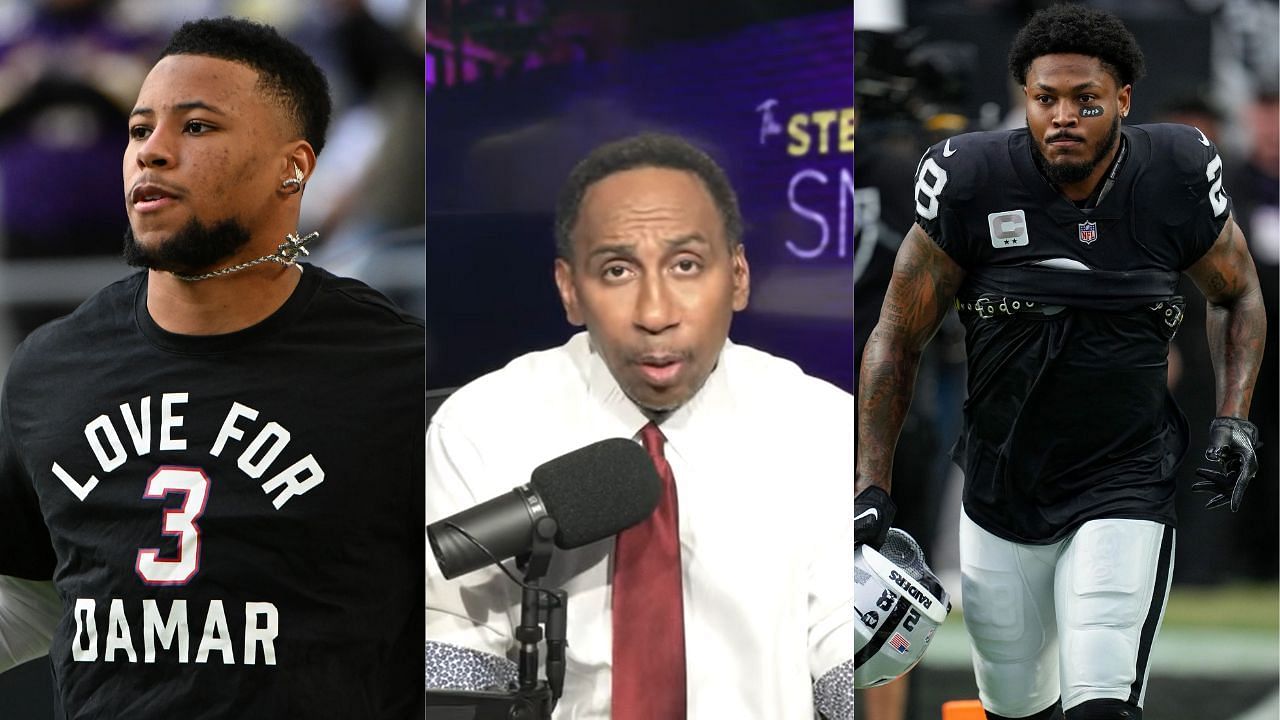
Stephen A. Smith wants NFL to take away franchise tag as Saquon Barkley and Josh Jacobs fail to land extensions
The great running back debacle of 2023 is still alive and well, and Stephen A. Smith has a solution for the dilemma Saquon Barkley and Josh Jacobs currently face:
Remove the franchise tag completely.
On his eponymous ESPN radio program, the veteran sportscaster explained why this special type of one-year contract would have to go:
"Here's my suggestion. If they (the NFL and NFL Players' Association) wanted to do right by these guys... you know what they could do? At least take away the franchise tag.
"How about making sure they could come into the league earlier, so (that) they can start earning money at an earlier age?
Letting them come into the league two years earlier, so (that) you can't look at them when they're 27 and 28 years of age or so (that) you can look at them at that particular moment in time and say, 'Okay, that's fine.'"
Stephen A. Smith thinks running backs are getting "screwed over" by the NFL
Ever since the aforementioned running backs and Tony Pollard fail to receive long-term deals, their peers like Derrick Henry and Christian McCaffrey have voiced their support. Now Stephen A. Smith may have joined them, and he points to a possible plot to drive them out of the league.
He said on the same show:
"Running backs are getting screwed over by the National Football League. Now, I don't say the National Football League as in the front office - I'm talking about the league itself.
"At some point in time, what the National Football League does is look at your birth certificate, and they say 'Hell, your 27-28 years old. That ain't gonna work for us.'
And so you're marginalized and essentially pushed out - not necessarily have a job, but from earning the level of pat that other people in their positions earn in the National Football League."
What is the franchise tag? Explaining the special contract that Stephen A. Smith wants gone
Introduced in 1993, the franchise tag is a special one-year contract that binds a specific player to one year for an amount equivalent to either the average of the top five salaries at his position or 120% of his previous salary, whichever is higher.
If the tag is exclusive, the top-five period is April of the year when the tag goes into effect. If non-exclusive, it is the last five years.
Only a player signed to a non-exclusive tag can negotiate with other teams. If he accepts an offer sheet, his original team can either match it or receive two first-round draft picks.
A player may be tagged up to three times, but if that happens, he must receive either 144% of his previous salary or the top-five average at his position, whichever is higher.